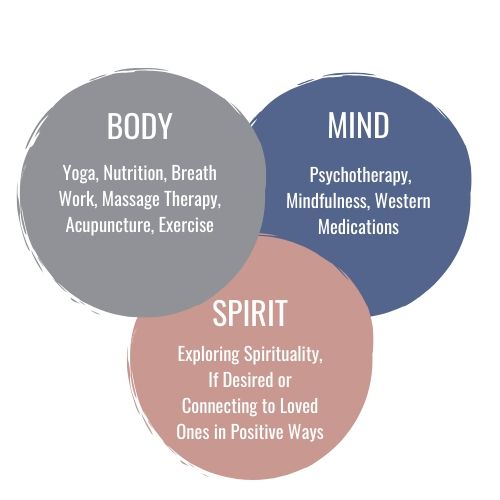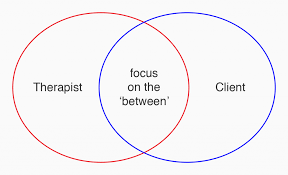Integrative therapy is a term that is used to describe a wide range of therapies that are used to treat mental health conditions. This type of therapy can be very effective for those who are struggling with a variety of issues.
In this blog post, we will explore what integrative therapy is, how it works, and the benefits that it can provide. We will also discuss some of the limitations of integrative therapy. And provide tips on how to find an integrative therapist.
Contents
Understanding Integrative Therapy

Integrative therapy is a type of therapy that focuses on the whole person. This type of therapy looks at the mind, body, and spirit as interconnected parts of a whole. Thus, integrative therapists believe that all three parts of the self must be in balance for someone to be truly healthy.
Theory Behind Integrative Therapy
The theory behind integrative therapy is that mental health conditions are often caused by an imbalance in one or more of these areas. By treating the whole person, integrative therapists hope to bring about balance and healing.
History And Development
Integrative therapy is not a new concept. In fact, it has its roots in ancient philosophies and traditions. The first recorded use of integrative therapies dates back to 4000 BCE. This type of therapy has been used throughout history in a variety of cultures.
Unfolding Integrative Therapy

Integrative therapy is an umbrella term that is used to describe a wide range of therapies. There are many different types of integrative therapies; each with its own unique approach.
Who Can It Help
Integrative therapy can be used to treat a wide range of mental health conditions. It is often used to treat anxiety, depression, and stress. It can also be used to treat more specific conditions. Such as post-traumatic stress disorder (PTSD) and eating disorders.
How Does It Work
Integrative therapy works by treating the whole person. This type of therapy looks at the mind, body, and spirit as interconnected parts of a whole. By treating all three parts of the self, integrative therapists hope to bring about balance and healing.
Techniques Used In Integrative Therapy
Integrative therapists use a variety of techniques to treat their clients. However, some of the most common techniques that therapists use in integrative therapy include:
- Bodywork: This type of therapy uses touch to promote healing.
- Breathwork: This type of therapy helps clients focus on their breath to relax and let go of stress.
- Meditation: This type of therapy helps clients focus on the present moment and find inner peace.
- Yoga: This type of therapy uses physical postures and breathing exercises to promote health and well-being.
- Art therapy: This type of therapy uses art to help clients express their emotions.
Evaluating Integrative Therapy

Integrative therapy is a relatively new field, and more research is needed to evaluate its effectiveness. However, several studies have been conducted on the efficacy of integrative therapies.
- One study found that integrative therapy was effective in treating anxiety and depression. The study found that those who received integrative therapy had lower levels of anxiety and depression than those who did not receive the treatment.
- Another study found that integrative therapy was effective in treating PTSD. The study found that those who received integrative therapy had lower levels of PTSD than those who did not receive the treatment.
Benefits of Integrative Therapy
There are several benefits associated with integrative therapy. However, some of the most common benefits include:
- Improved self-esteem
- Improved coping skills
- Increased sense of well-being
- Reduced anxiety and depression
Limitations of Integrative Therapy
Integrative therapy is not a perfect solution for everyone. Since there are several limitations associated with this type of therapy. However, some of the most common limitations include:
- The cost of integrative therapies can be prohibitive for some people.
- Not all insurance plans cover integrative therapies.
- There is a lack of trained practitioners.
Why Consider It
Despite its limitations, integrative therapy is a promising treatment option for those struggling with mental health conditions. So, if you are considering this type of therapy, it is important to consult with a mental health professional. As it will give you an idea if it is right for you.
Finding an Integrative Therapist

If you are interested in finding an integrative therapist, there are a few things you should keep in mind.
How To Find One
There are several ways to find an integrative therapist. However, you can:
- Ask your doctor for a referral,
- Search online, or
- Look in the yellow pages.
What To Look Out For
When searching for an integrative therapist, there are a few things you should look out for. For instance:
- First, you should make sure that the therapist you are considering has training in integrative therapies.
- Second, you should make sure that the therapist you are considering has a license and insurance.
- Finally, you should make sure that the therapist you are considering is a good fit for you.
Red Flags To Avoid
When searching for an integrative therapist, there are a few red flags you should be aware of. For instance:
- First, you should avoid therapists who claim to have a “cure” for mental health conditions. There is no one-size-fits-all solution for mental health conditions. And any therapist who claims otherwise is not being honest.
- Second, you should avoid therapists who pressure you into signing up for services or buying products. Since a good therapist will never pressure you into anything.
- Third, you should avoid therapists who do not have licenses and insurance. This is a major red flag, as it means that the therapist is not held accountable for their actions.
Pursuing Training In Integrative Therapy

If you have an interest in pursuing training in integrative therapy, there are a few things you should keep in mind. For instance:
- First, it is important to make sure that the program you are considering has accreditation.
- Second, it is important to make sure that the program you are considering offers a comprehensive curriculum.
- Finally, it is important to make sure that the program you are considering is a good fit for you.
NOTE: We invite you to list yourself on Therapy Mantra’s Integrative Therapist Directory.
Hearing From Experts

“Integrative therapies are a promising treatment option for mental health conditions. I believe that these therapies have the potential to provide relief for many people who are struggling.” – Dr. Maryam Kia-Pasha, a clinical psychologist and expert in integrative therapies
“I think eclectic therapy is a great way to approach mental health treatment because it allows for a lot of customization.” – Dr. Sarah Allen, Psychologist
Case Study
Annie is a 27-year-old woman who has been struggling with anxiety and depression for the past few years. Annie’s mental health conditions have caused her to miss work. And she has been struggling to keep up with her responsibilities at home. Then, Annie’s doctor refers her to an integrative therapist. And she begins therapy the following week.
During therapy, Annie learns about different techniques that she can use to manage her anxiety and depression. She also learns about the importance of self-care. Simultaneously, she begins to implement a self-care plan.
After a few months of therapy, Annie is doing much better. She has been able to return to work. And she is managing her responsibilities at home with ease. Furthermore, Annie’s integrative therapist has helped her to find a treatment plan that works for her. And she is now on the road to recovery.
Resources
If you have an interest in learning more about integrative therapy, there are a few resources that you can check out.
- The National Association of Integrative Medicine: This website provides information on integrative therapies, as well as a directory of integrative therapists.
- The American Psychological Association: This website provides information on integrative therapies, as well as a directory of integrative therapists.
- The National Center for Complementary and Alternative Medicine: This website provides information on integrative therapies, research on these therapies, and a directory of integrative therapists.
Conclusion
Integrative therapy is a promising treatment option for those struggling with mental health conditions. If you have an interest in pursuing this type of therapy; it is important to do your research and find a therapist who is a good fit for you.
A Word From Therapy Mantra
Your mental health — Your psychological, emotional, and social well-being — has an impact on every aspect of your life. Positive mental health essentially allows you to effectively deal with life’s everyday challenges.
At TherapyMantra, we have a team of therapists who provide affordable online therapy to assist you with issues such as depression, anxiety, stress, workplace Issues, addiction, relationship, OCD, LGBTQ, and PTSD. You can book a free therapy or download our free Android or iOS app.


